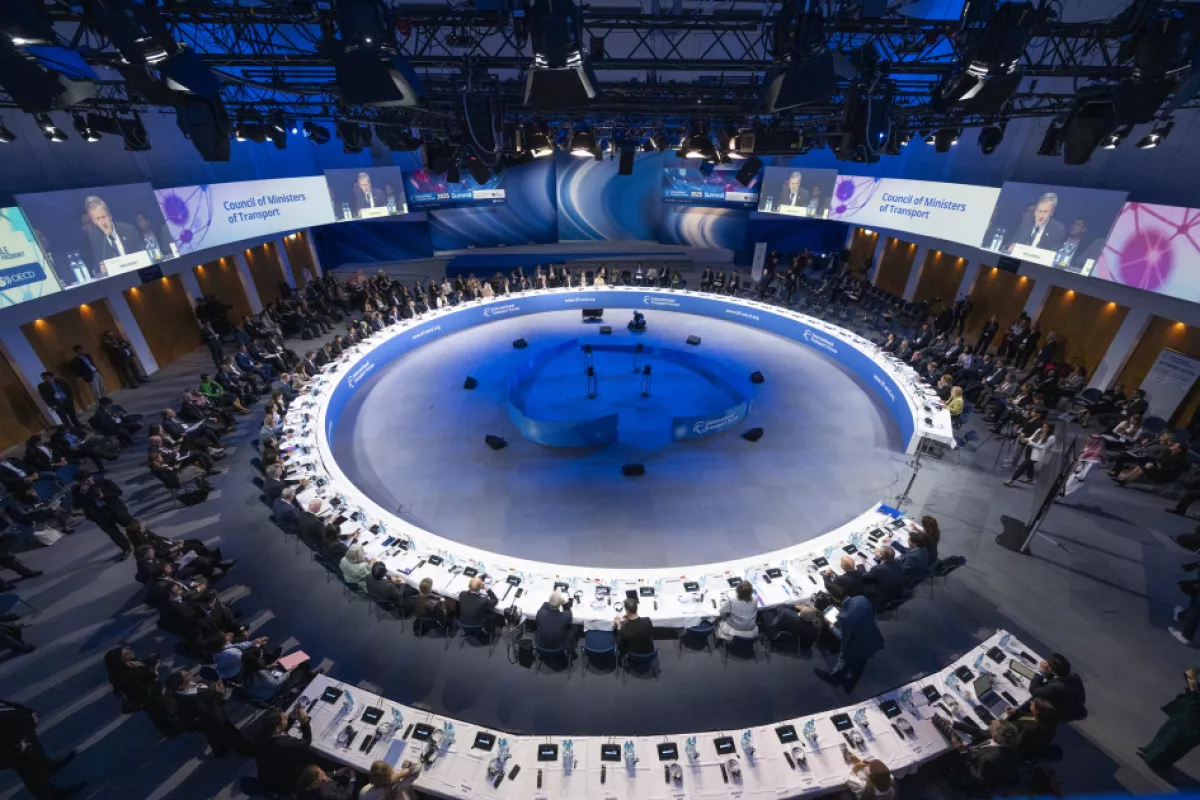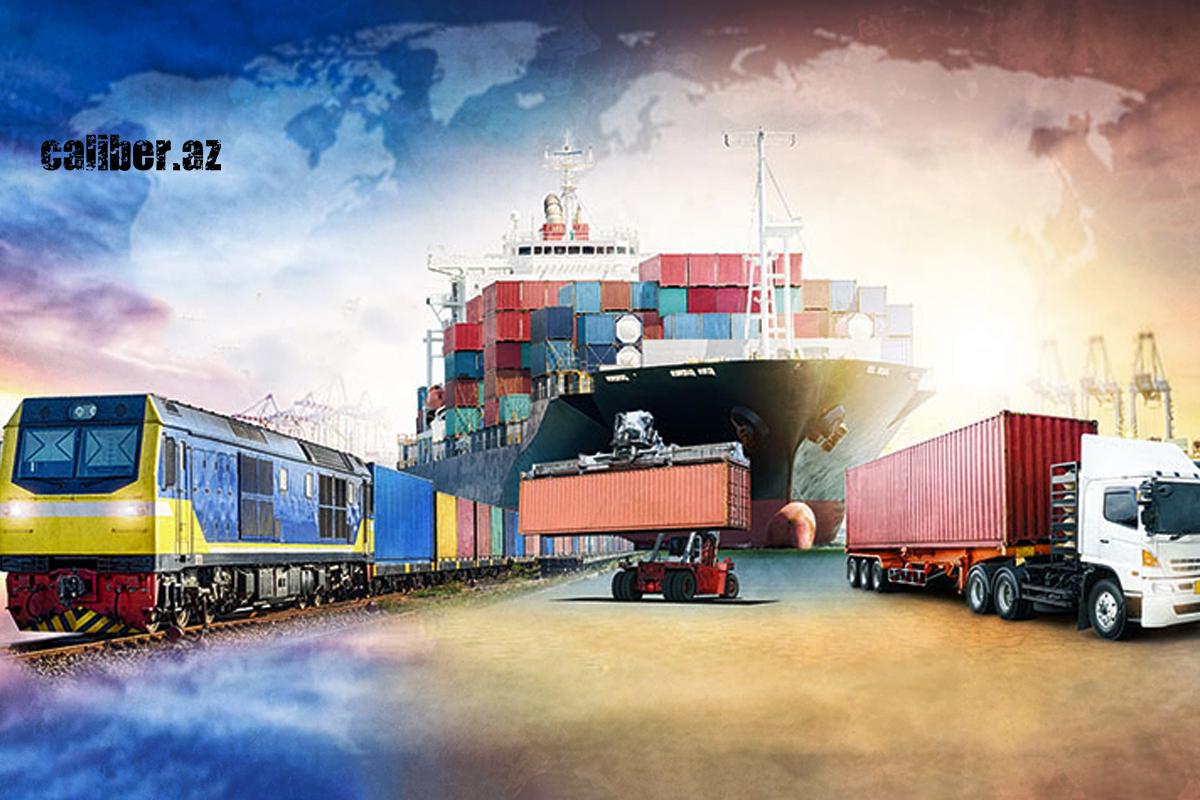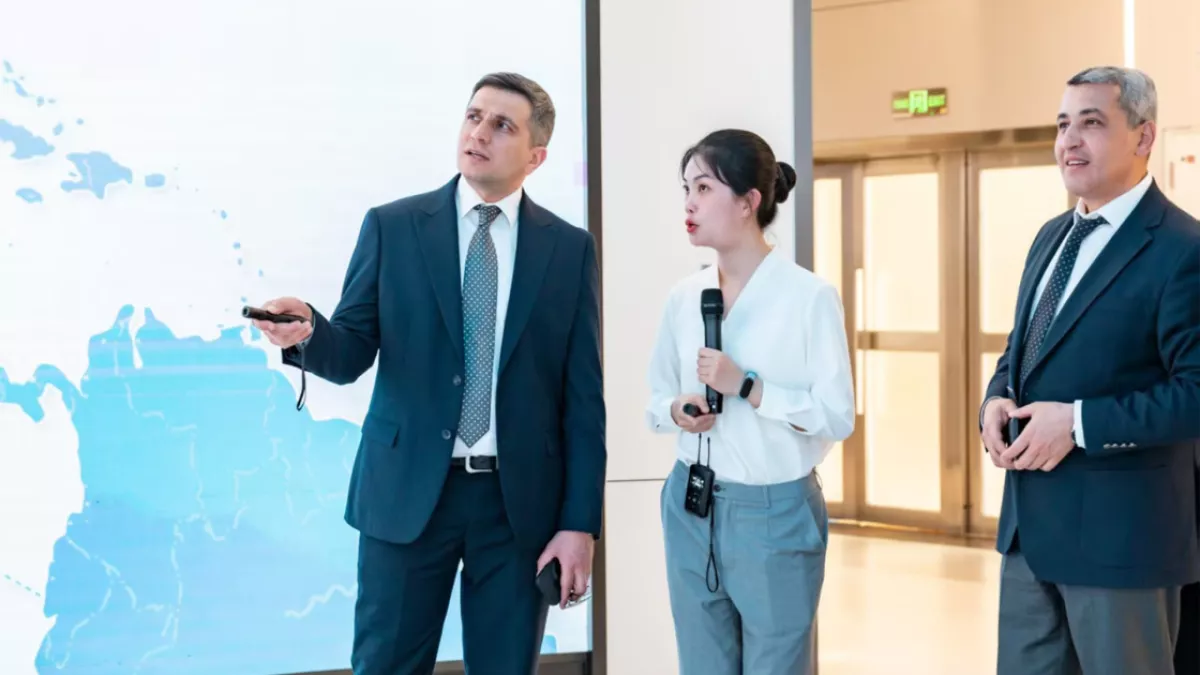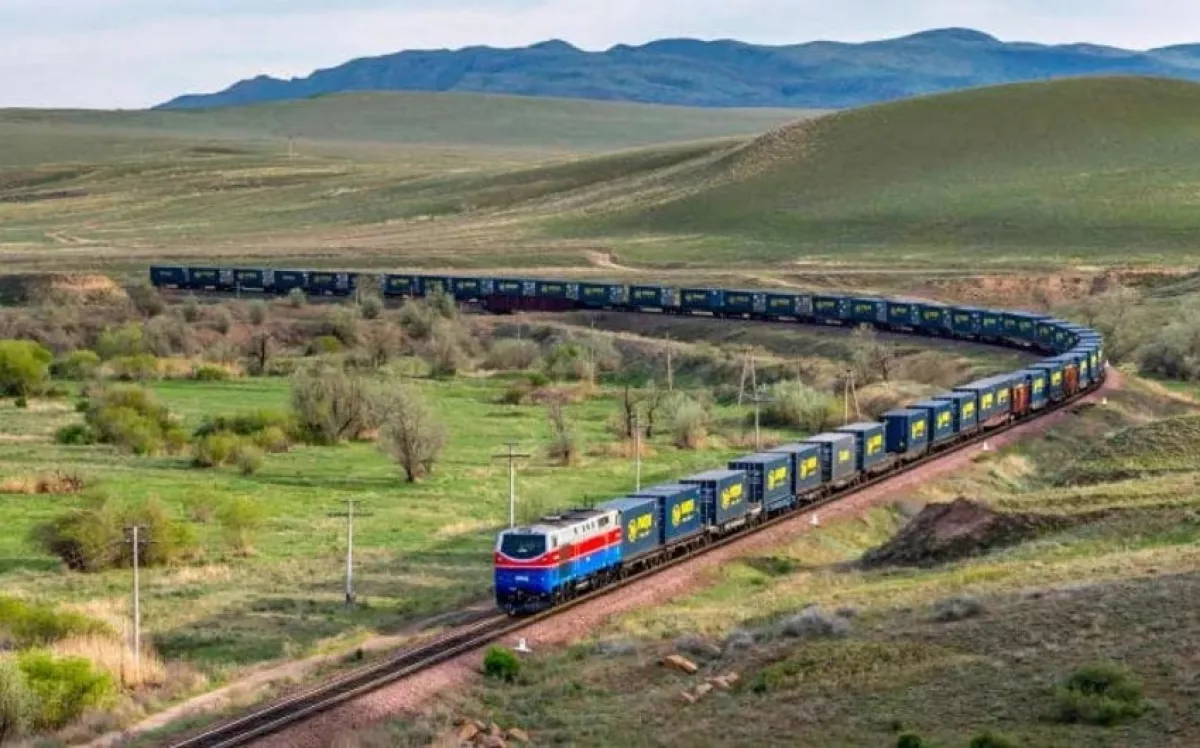Azerbaijan’s transport diplomacy From the Caspian to Leipzig
As a key transport hub of the Middle Corridor, Azerbaijan is developing a modern transport and logistics infrastructure, implementing new IT solutions and “green” technologies. As a transport and logistics centre of Eurasia, Baku’s efforts in recent years have been focused on consolidating railway connections between China and Europe, as well as integrating with the Trans-European Transport Network (TEN-T). These and other directions were highlighted at the recently concluded annual “International Transport Forum 2025” (ITF) in Leipzig, Germany, during which the chairmanship of the summit for 2025–2026 passed from Chile to Azerbaijan.

Today, it is difficult to overestimate the importance of the Trans-Caspian container and road transshipment for the countries of Central Asia (CA) and China in the direction of Türkiye and Europe along several routes of the Middle Corridor. Due to its advantageous geographical location and well-developed logistics and transport communications, Azerbaijan plays an exceptional role in this project. The country, together with regional partners — Kazakhstan, Georgia, and Türkiye — coordinates plans to optimise regional logistics, modernises transport infrastructure, harmonises tariffs for transportation and cross-border procedures, and streamlines customs legislation. The implementation of an electronic queue system at borders, digital document exchange, the use of electronic navigation seals on transit cargo, and special trackers on vehicles are just a few of the digital mechanisms introduced in Azerbaijan in recent years to ensure seamless multimodal container transportation, all handled in a fully electronic format.
“In recent years, Azerbaijan has made substantial investments in highways, railroads, seaports, shipyards, and air transport. As a result, despite being a landlocked country, Azerbaijan has become one of the transport and logistics hubs in Eurasia,” President Ilham Aliyev stated recently during an informal meeting of the Council of Heads of State of the Organisation of Turkic States (OTS) in Budapest. President Aliyev emphasised that Azerbaijan, which possesses the largest fleet in the Caspian Sea with more than 50 commercial vessels, is currently building an additional 10 new ships. This is of great importance for the countries of the region in terms of expanding communications. At present, Azerbaijan operates 8 international airports, with another one scheduled to open next year in Lachin. Additionally, the country is constructing the largest cargo terminal in the region, with a capacity of 1.5 million tons, within the Alat Free Economic Zone.

Azerbaijan’s achievements in the transport and logistics sector were also showcased at the International Transport Forum 2025 summit held from May 21 to 23. The event brought together over 1,200 delegates from more than 80 countries, including Azerbaijan, a full member of this organisation since 1998. The key focus of this year’s forum, themed “Transport Resilience to Global Shocks,” was to discuss ways to ensure the resilience of transport systems amid growing challenges and risks posed by disruptive factors such as natural disasters, pandemics, cyber threats, and geopolitical crises.
The topic raised at the ITF summit has become especially relevant in recent years, particularly against the backdrop of the geopolitical fracture of the Eurasian transport space caused by the ongoing Russian-Ukrainian war since 2022, as well as escalating conflicts in the Middle East, which pose threats to navigation in the Red Sea and the Suez Canal. These and other circumstances have significantly increased the importance of the transport routes along the Middle Corridor, where a special role is assigned to the countries of Central Asia, Azerbaijan, Georgia, and Türkiye, acting as a vital link in the massive trade flow between China and Europe. To expand cargo traffic along the Trans-Caspian route and eliminate bottlenecks, extensive reconstruction is underway at Kazakhstan’s port of Aktau; new terminals are being constructed at the Baku International Sea Trade Port (BISTP) in Alat; and the Georgian railway section of Baku-Tbilisi-Kars has been modernised, among other projects.
Speaking at the meeting of the Transport Ministers’ Council during the ITF summit, the head of the Azerbaijani delegation, Deputy Minister of Digital Development and Transport Rahman Hummatov, outlined the steps Azerbaijan is taking to create transport systems resilient to global disruptions. He shared information about the digitalisation of urban infrastructure, including the ongoing “Digital Twin” project, as well as efforts to develop environmentally friendly and sustainable transport systems. The Deputy Minister also emphasised Azerbaijan’s active participation in regional transport projects and highlighted the importance of international cooperation in this field.

When discussing international cooperation, it is important to mention that recently, during the China-Europe Railway Express Global Partners Forum, a delegation from Azerbaijan Railways (ADY), led by Deputy Chairman Arif Aghayev, took part in signing a document on the "Cooperation Initiative for the Construction of a Consolidation Center for the China-Europe Railway Express." The China-Europe Railway Express passing through Azerbaijan connects 123 cities in China with 224 cities across 25 European countries and 108 cities in 11 Asian countries. The new agreement aims to strengthen cooperation in infrastructure development, optimise the organisation of transportation and improve service quality, establish a “smart” logistics centre, and reduce transportation costs on railway routes.
“In January-April 2025, Azerbaijan received 165 block trains from China, and by the end of the year, the total is expected to exceed 600 block trains,” stated Aghayev. “In 2024, the volume of goods transported by rail between our countries increased by 47%, reaching 612,000 tonnes. Container block train shipments are also growing rapidly, and these figures once again confirm the strategic importance and potential of the Middle Corridor.”

Baku is making equally important efforts to foster transport cooperation in the westward direction. In this regard, Azerbaijan and its TRACECA partners in Central Asia actively collaborate with the European Commission and the European Bank for Reconstruction and Development (EBRD), which provide advisory, technical, and financial support for the development of logistics and infrastructure along the Trans-Caspian International Transport Route (TITR).
Under the EU’s Facility for Eastern Partnership Investment in Connectivity (EPIC) initiative, Azerbaijan is also cooperating with the European Investment Bank (EIB), which recently completed an advisory project aimed at improving the efficiency and safety of Azerbaijan Railways’ infrastructure. These initiatives are implemented through the EIB’s JASPERS advisory programme, which provides grant-based technical assistance to EPIC countries to enhance transport connectivity. Special attention has been given to improving safety at railway crossings along the key 503-km Baku – Boyuk Kasik line, linking the capital and Baku port with the Georgian railway network that provides access to the Black Sea. This corridor is part of the Trans-European Transport Network (TEN-T) and plays a crucial role in the operation of the Middle Corridor.
Azerbaijan’s efforts in developing transport infrastructure and fostering logistics cooperation between Europe and China have not gone unnoticed internationally and have received high praise during the summit in Leipzig. Notably, by unanimous decision of the ITF member states, the chairmanship of the International Transport Forum Summit for 2025–2026 was transferred from Chile to Azerbaijan.
“For Azerbaijan, this chairmanship is not merely a task but a continuation of our considerable efforts to promote more innovative, environmentally friendly, and interconnected transport systems. We understand that transport is not just infrastructure but a tool for economic development, regional cooperation, and social integration,” emphasised Rahman Hummatov during a press conference of transport ministry leaders.








